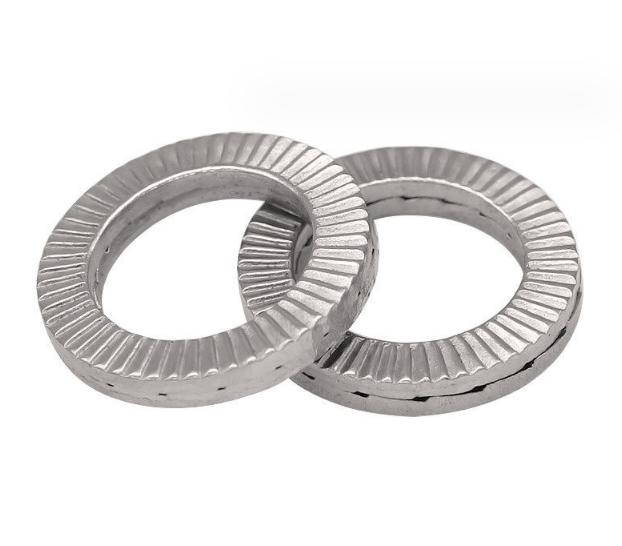When to Use Lock Washers?
Lock washers are basic but efficient fastening components that prevent nuts and bolts from becoming free due to vibration, temperature changes, or other external influences. Knowing when to use lock washers can help ensure the integrity and reliability of your assemblies. In this article, we’ll explore the purposes and instances when using lock washers is essential for ensuring reliability and the useful tips for using lock washers effectively.

Key Situations and Applications Where Lock Washers are Commonly Used
Vibrating Environments
Lock washers are critical in applications that are subjected to constant or periodic vibrations. Machines, motors, and vehicles, such as motorbikes and off-road vehicles, are frequently subjected to substantial vibration. Lock washers serve to keep fasteners tight and prevent them from loosening over time.
Temperature Variations
Locking washers are useful when temperature variations can impact fastener tightness. Lock washers help maintain tension in the connection, preventing unintended loosening when materials expand and contract with temperature swings.
Heavy Machinery and Equipment
Lock washers are widely employed in applications involving large machinery and equipment, where bolts and nuts are subjected to significant loads and forces, to ensure that fasteners remain firmly in place even under high stress.
Outdoor and Exposed Environments
Outdoor structures and equipment are subjected to extreme weather conditions such as wind, rain, and temperature fluctuations. Lock washers are used to keep fasteners from loosening and to keep the integrity of outside installations like fences, signs, and building projects.
Critical Safety Applications
Locking washers are an essential component of safety precautions in industries where fastener failure could be disastrous. Lock washers are used in industries such as aviation, aerospace, medical equipment, and nuclear power to ensure the highest level of security.

Repeated Disassembly and Reassembly
Lock washers are useful in situations where components need to be frequently disassembled and reassembled. These washers ensure that fastened connections remain secure and stable, even after multiple cycles of assembly and disassembly.
Compliance with Industry Standards
Some industries and applications have specific regulations and standards that mandate the use of lock washers for safety and quality control. It is essential to follow industry-specific guidelines and requirements.
High-Torque Applications
Lock washers are widely used in high-torque applications where bolts and nuts must be tightened to great power. These washers aid in the maintenance of the proper torque and the prevention of fastener loosening during operation.

Dynamic or Moving Parts
When fasteners are used in assemblies with dynamic or moving parts, such as machinery with rotating components or vehicles with suspension systems, lock washers are vital to ensure that the fasteners remain securely tightened.
Preventing Galling
Wedge locking washers can also be used to avoid galling, which is caused by two metal surfaces rubbing against each other during tightening. The lock washer acts as a barrier between the nut and the mating surface, minimizing friction and galling.
Tips for Using Lock Washers Effectively
To ensure that lock washers perform their intended function effectively, follow these tips:
Proper Installation
Check that lock washers are properly placed, with the raised side or teeth towards the nut or bolt head. This enables the washer to grasp and tension.
Use the Right Type
Choose the correct type of lock washer for your application, such as a serrated lock washer. The choice should align with factors such as vibration levels, load requirements, and environmental conditions.

Maintain Torque
Always adhere to the torque specifications suggested by the manufacturer or industry norms. Torque control ensures that the lock washer works properly.
Regular Inspection
Inspect fasteners and locking washers on a regular basis for evidence of wear, damage, or loosening. To preserve security, replace any compromised components as soon as possible.
Conclusion
Lock washers are useful tools for improving fastener security and preventing accidental loosening in a variety of applications. You can assure the dependability and safety of your projects, equipment, and structures by understanding when and where to utilize them and following best practices for installation and maintenance.








